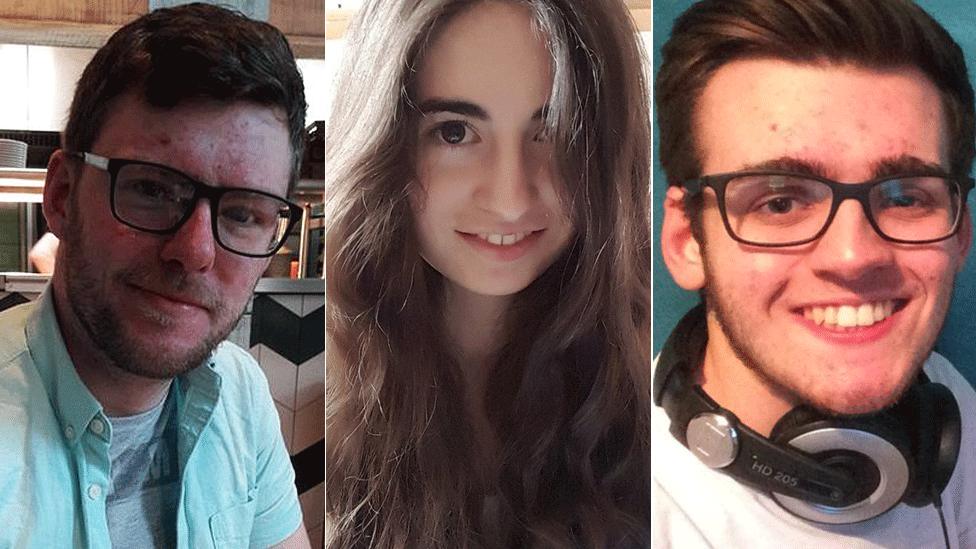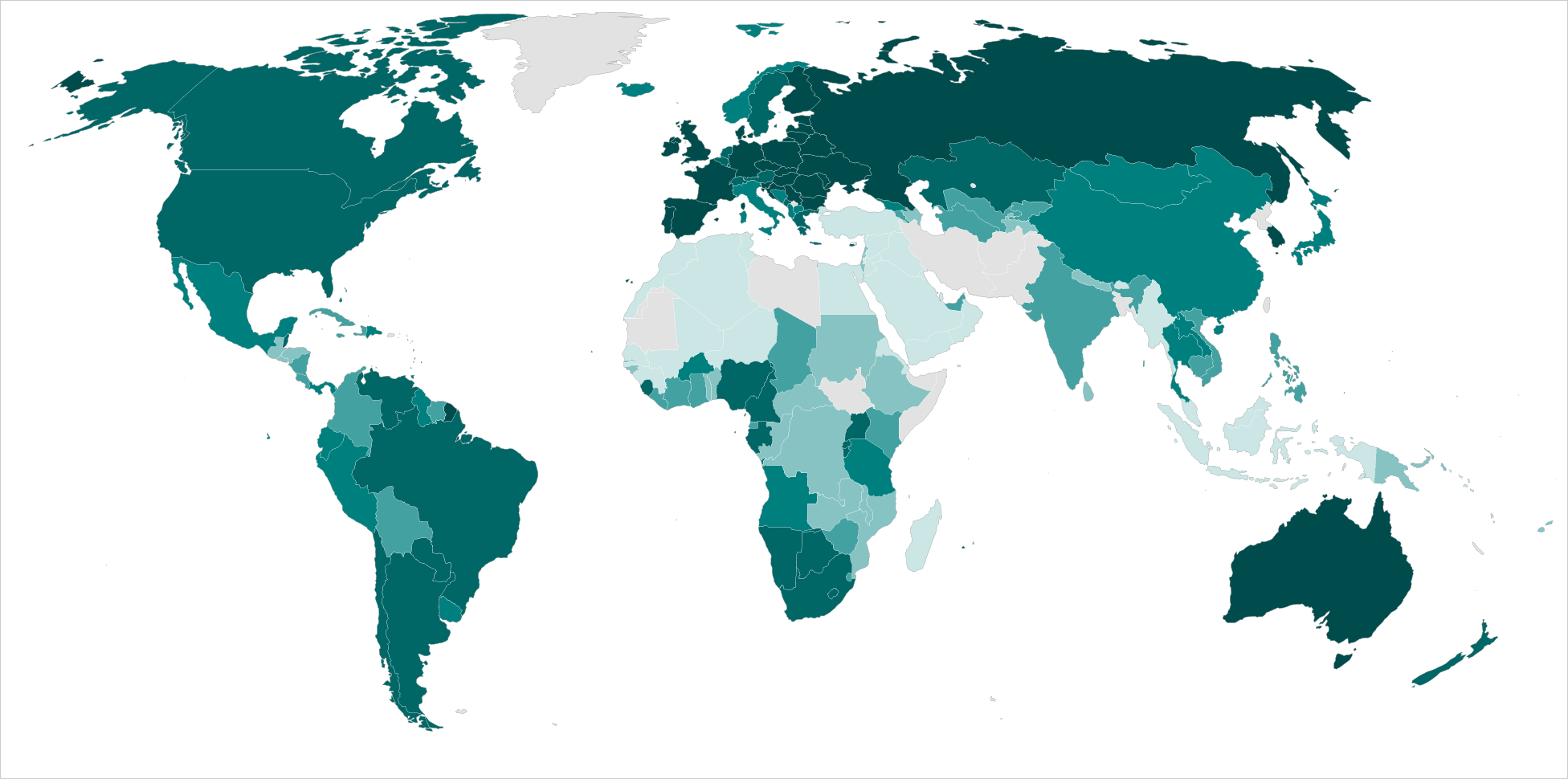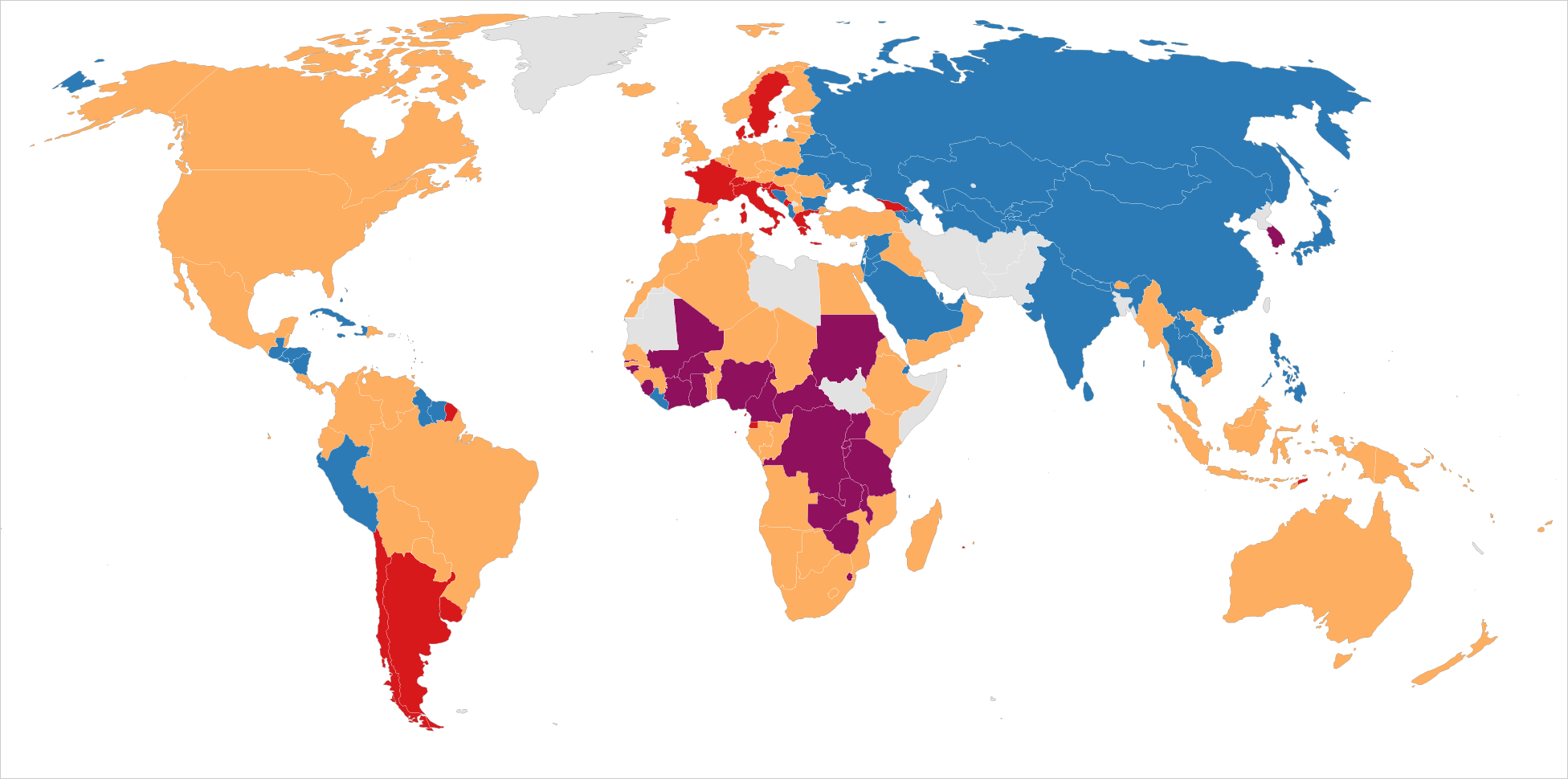Adrian Chiles 'horrified' at drinking 100 alcohol units a week
- Published
Presenter Adrian Chiles speaks about alcohol after revealing he sometimes drank 100 units a week.
Presenter Adrian Chiles has urged people to track their alcohol intake after revealing he sometimes drank 80 or 100 units a week.
The BBC 5 live host said it was "horrifying" to add up his alcohol consumption, which was well over the recommended weekly 14 units.
He was told by a doctor he "can't carry on like this" and his liver damage could cause cirrhosis or death.
Chiles, 51, has tackled the issue of drinking in a new BBC documentary.
Speaking on BBC Breakfast, Chiles said: "I was just staggered what I was putting away".
He said most of his drinking was "completely mundane and harmless", adding: "I don't really get drunk, I don't misbehave, I don't drink during the day, I don't drink alone, I don't particularly stay up late.
"I just drink something every day.
"There are loads of us who just drink too much and I just wondered why I was so dependent on it in a small way, or is it a big way."
Chiles' comments have prompted many people to speak about their own drinking habits. Actress Linda Robson told ITV's Loose Women she thought "maybe I could have been on the way to being an alcoholic" when she used to drink a bottle of wine a night.
She said: "My big thing was because I didn't drink in the daytime then I didn't have a problem and I could make myself wait until that time every night so I obviously didn't have a problem.
"But I was still functioning, I was still coming into work."
'We are the problem'
Chiles - who sees himself as a social drinker and not an alcoholic - said he wanted to make the programme after being interested in people's ideas of what type of drinking counts as alcoholism.
For the documentary, called Drinkers Like Us, the TV and radio broadcaster recorded how many units he was drinking.
In an interview with the Times,, external he said on one morning he calculated that he had drunk more than 100 units in the previous week, whereas other times his weekly amount was 80 units.
The NHS advises men and women not to drink more than 14 units a week - equivalent to six pints of average-strength beer or 10 small glasses of wine.
Chiles said people like him - the "constant drinkers, the toppers up" - are "the problem".
Although his blood tests were completely normal, a scan showed he had mild to moderate fibrosis of the liver - a type of damage that includes scar tissue forming - and significant liver fat.
The doctor told Chiles: "You can't carry on like this. You're at risk of disease progression to cirrhosis, liver disease and failure - and death."
In his documentary, Chiles is warned by a doctor: "You can't carry on like this."
Chiles said it might be easier to "stop completely" rather than moderating his drinking, which he said requires planning.
He said: "I think middle-aged 'supposedly moderate' drinkers need to take a look at ourselves.
"I encourage anyone, don't judge yourself, don't panic you're not going to drop dead, but go on an app like 'Drink Less' and measure what you're drinking, be honest with yourself for three weeks."

How does your drinking measure up to the average in countries around the world? Find out below if you are similar to a boozy Belarusian or a teetotal Kuwaiti.

Chiles, who used to present ITV Breakfast show Daybreak until 2011, has also spoken about his struggle with anxiety and depression.
He told the Radio Times, external that after first leaving the show he was "self-medicating with alcohol".
Drinkers Like Us will be broadcast on BBC Two next Monday 27 August at 21:00 BST.

Do you drink the same amount as Adrian Chiles? What changes have you made to your alcohol intake? Email haveyoursay@bbc.co.uk, external.
Please include a contact number if you are willing to speak to a BBC journalist. You can also contact us in the following ways:
WhatsApp: +44 7555 173285
Tweet: @BBC_HaveYourSay, external
Send pictures/video to yourpics@bbc.co.uk, external
Text an SMS or MMS to 61124 or +44 7624 800 100
Please read our terms & conditions and privacy policy
- Published2 August 2018
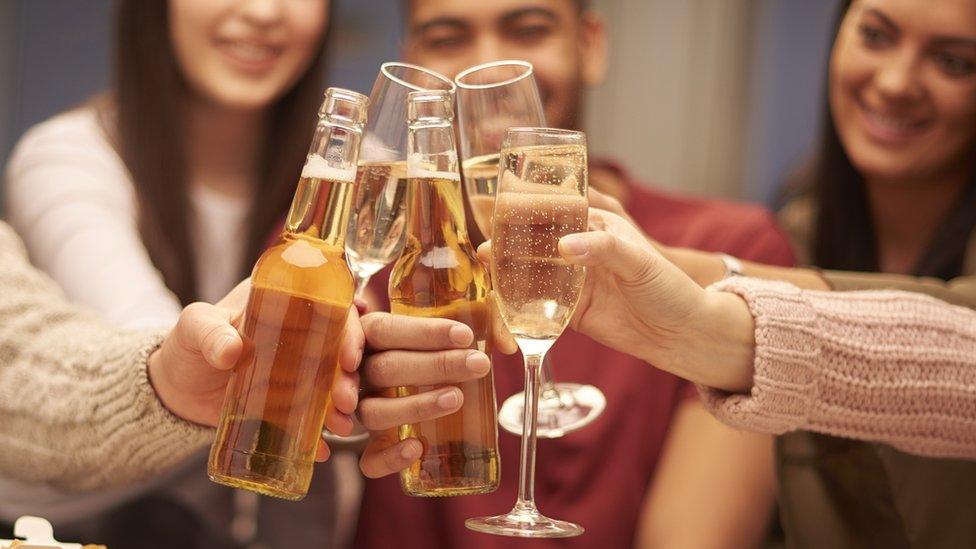
- Published31 July 2018
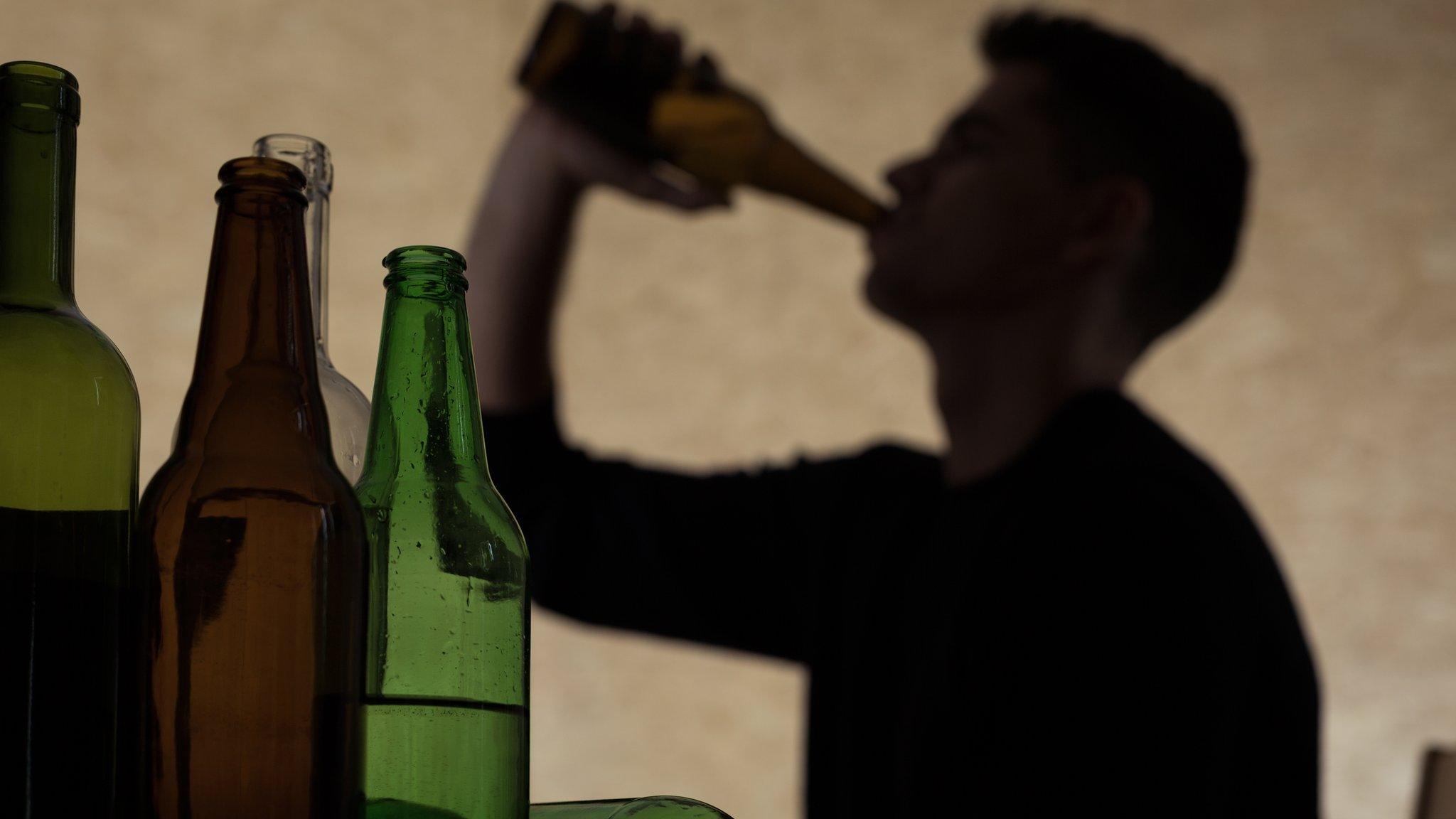
- Published28 July 2018
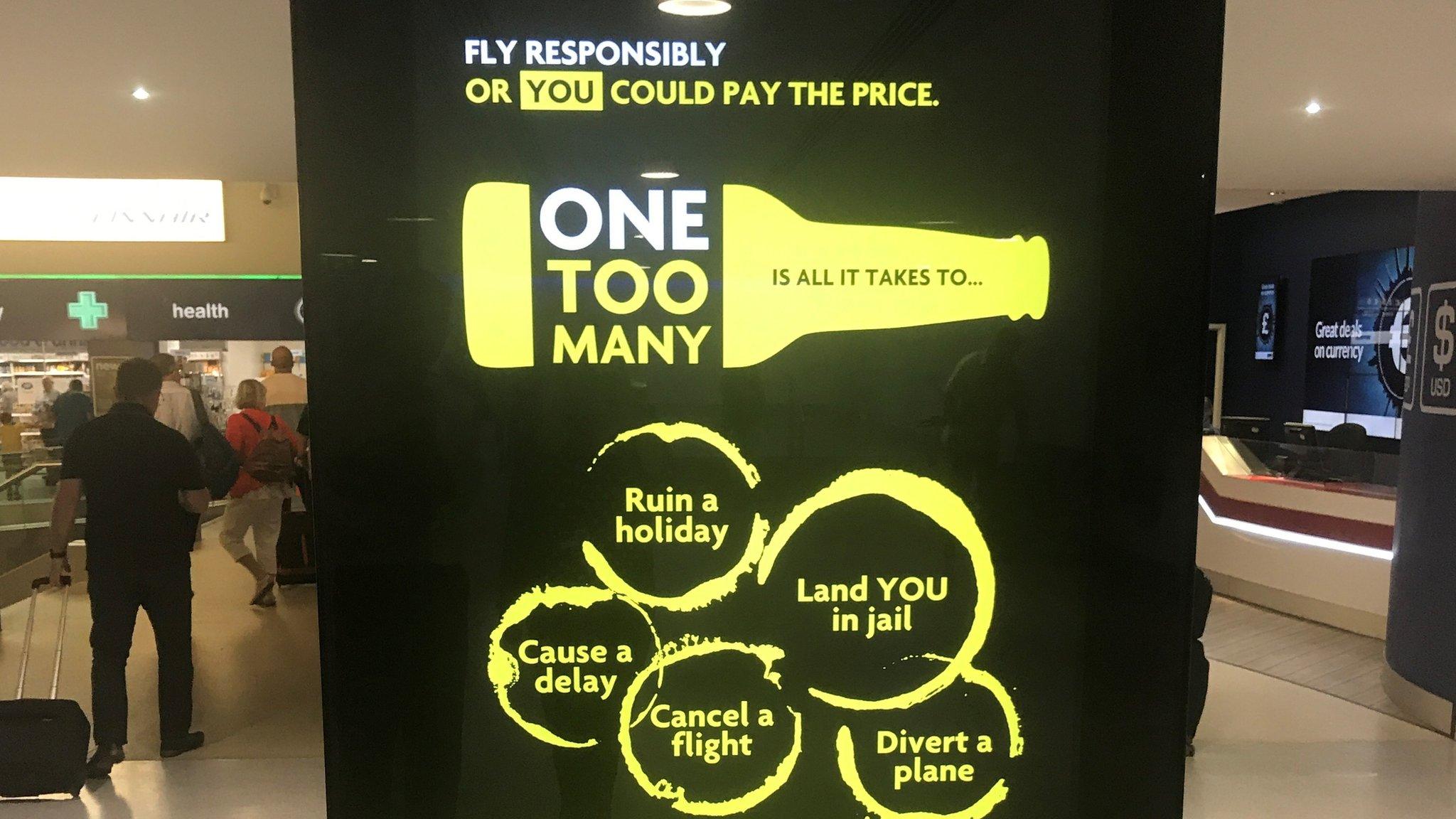
- Published22 June 2018
